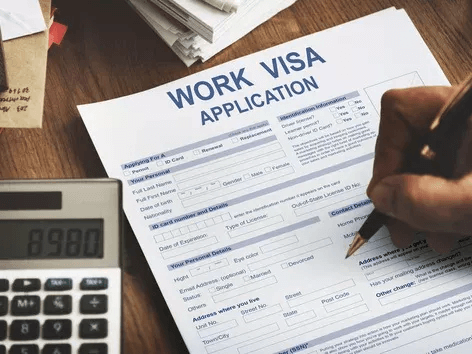If you’ve just moved to Dubai and are looking for a place to stay, it’s important that you get your money’s worth and that you’ll be content with the place you chose because rental fees here will be one of your greatest expenses.
We’ve therefore compiled a list of things to look for when apartment hunting in Dubai. It can occasionally become overwhelming, causing some items to be missed. In order to ensure you don’t overlook anything, we have put together a list of considerations you should make as you proceed with renting a new apartment or villa in Dubai.
Our checklist walks you through all the important things you need to look out for from the moment you start browsing listings on Bayut and Dubizzle until the moment you visit an apartment.

Checklist to use when searching for an apartment in Dubai
Choosing the right location for your apartment
The location is arguably the most important factor to consider when you’re looking for an apartment in Dubai. This will determine how easily you can access amenities such as grocery stores, schools, hospitals, and public transportation.
The location is largely a personal decision and there are various factors that need to looked into when deciding on a location. For instance, access to schools will be priority if you’re moving to Dubai with kids whereas easy access to public transportation will be more useful for you if you’re commuting to work everyday.
Second, the location can also affect your safety. In general, apartments in well-established, central neighborhoods tend to be safer than those in newer or less developed areas. This is because well-established neighborhoods are often more densely populated and have a stronger sense of community, which can help to deter crime.
Also, your choice for location can have an impact on your safety. Apartments in established, central neighborhoods are typically safer than those in more recent or less developed communities. This is because established communities frequently have a greater density of residents and a stronger sense of community, both of which can serve to reduce crime.

It can also impact one’s overall quality of life. For instance, if you want a more active, metropolitan lifestyle, you might want to select an apartment in a prominent, popular area. On the other hand, if you choose a calmer, more relaxed environment, you might opt to pick an apartment in a residential area.
In general, while selecting a place to live, the location of an apartment in Dubai is crucial to take into account. It’s crucial to carefully analyze your alternatives and pick a location that best meets your needs and tastes because it can affect your access to facilities, safety, and overall quality of life.
Decide on the budget
It’s important to factor in the various cost components and also any additional fees that may apply when choosing a place to stay in Dubai. For example, some apartments may require a monthly maintenance fee, security deposits and, sometimes, a fixed charge for amenities.
Additionally, it’s also important to consider the cost of utilities, such as electricity, water, and gas, as these can add significantly to the overall cost of living.
If you’re just moving into Dubai, you need to also factor in the upfront costs of moving into an apartment. This can include the cost of renting a moving truck or hiring movers, as well as the cost of purchasing furniture and other household items.
It’s important to carefully consider your budget and make sure that you can afford the monthly rent and other costs associated with living in the apartment.
Listed below are some indicative costs that you might want to consider:
- Agency fees: The total rent excludes the 5% of the annual rent, which is the fee paid to the real estate agency.
- Security deposit: It usually equals to 5% or 10% of the annual rent for an unfurnished and furnished apartment respectively. This would be refunded at the end of your contract. Make sure you collect the security deposit from your house when you move out.
- DEWA deposit: This is a mandatory fee by the Dubai Electricity and Water Authority (DEWA). This refundable DEWA deposit for apartments is AED 2k and AED 4k for villas. You also have an additional non-refundable connection fee of AED 110.
- Housing fee: Also referred to as a municipality fee. It is 5% of your annual rent, and it will be added to your DEWA monthly bill.
- Ejari fees: A one-time fee of AED 195 for your tenancy contract.
- Chiller or empower deposit and gas deposit: This will depend on your place and the provider (if applicable).
Negotiate on the Number of Cheques
All tenants in Dubai are expected to pay their rent via cheques, which can be issued as one cheque for the entire year or in installments of four or six cheques to cover the entire contract period.
These specifics are typically mentioned by real estate agents in the property listing descriptions and also the tenancy contract.
Checklist to use when viewing the apartment in Dubai
Now that you know what to look for in a new apartment, let’s move on to the most important aspect of your apartment search. How, though, can you tell which property is best for you?
Here is a checklist that we’ve put together for apartment hunting in Dubai. Hopefully, this will make the process easier for you based on responses posted by long-term residents of Dubai on forums and social media channels.
Explore the neighborhood

Some residential areas can become highly populated during peak hours, which you will only notice if you try commuting to and from your office between the hours of 8 a.m. and 6 p.m.
Aside from maps and neighborhood guides, you’ll need to stroll around and figure out how far it is from the building to the nearest supermarkets and utilities. If you don’t drive, you should also consider how long it will take you to walk to the nearest bus stop and/or metro station.
You may also use Google Maps’ heat map tool to check traffic at peak hours in the region. Traffic congestion is indicated by red and yellow roadways.
For instance, communities such as Jumeirah Village Circle, International City, and Barsha Heights, have generally smooth traffic flows. Even so, the roads in such communities can become quite congested during peak hours on weekdays, so we recommend checking ahead of time.
Build quality and facilities
- Security: Although Dubai is a safe city, it is always a good idea to look for an apartment complex that has 24-hour security and monitoring. This can provide you with peace of mind and preserve your safety.
- Parking: If you own a car, make sure the apartment complex offers plenty of parking for residents. Look for one with a designated parking place for residents as well as visitor parking for visitors.
- Warranty: This is usually applicable to brand new buildings whereby the developer offers a maintenance warranty for any damages or fixing required within the property. It’ll come in handy especially if you’re new to Dubai.
- Chiller-free: With chiller-free, the landlord pays the entire expense of air cooling rather than the tenant. Tenants in chiller-free flats in Dubai must only pay for power consumed within the unit, excluding air conditioning.
- Amenities: The majority of apartment complexes in Dubai have a variety of amenities such as swimming pools, gyms, and sports facilities. Consider whatever amenities are important to you and look for a community that provides them.
- Size and layout: When selecting an apartment, it is critical to evaluate the unit’s size and layout. Make sure it has adequate space for you and your family, and that the room layout suits your needs.
- Shower drain: Though this may not be a deal breaker, it’s important to check if the shower water drains properly since most properties in Dubai tend to have this issue.
- Ventilation: By visiting the location later at night, you can look for odd odors (after 8 pm or so). This is the time to find out if there are any problems with waste rooms, dirty chutes, and so on.
- Finish quality: Finally, pay close attention to the quality of the finishes of the property. Look for high-quality materials, such as marble or granite countertops, and inspect the appliances and fixtures for wear and tear. This will give you an impression of the apartment’s overall quality.
- Spacing: Check if there’s enough spacing for the fridge, washing machine & Gas stove and if it’s practical.
- Lighting: Though it may seem trivial, the natural lighting that falls on the apartment during daylight and the lighting from bulbs during the night is something you need to look into.
- Pest control: Always ask for a deep cleaning & pest control to be done before you move in.
Inspect the interior
- Examine how well the apartment’s walls can absorb noise from adjacent units. If your house’s walls are too thin, you may end up hearing noises such as children crying, loud television, music, and so on. If you’re a light sleeper, this should be at the top of your list.
- The overall condition of the flat, including any visible damage or wear and tear, the layout and design of the space, the quality and condition of the appliances and fixtures, and the overall cleanliness of the apartment are all key considerations.
- Check the condition of the walls, flooring, and ceilings for evidence of water damage, mildew, or other problems. You should also inspect the flat for any safety dangers, such as defective wiring or gas leaks, and ensure that it complies with all local construction rules and safety regulations.
- Keep an eye out for walls with chipped paint. Look for evidence of mold or leaks, particularly in the corners of walls.
- Try opening and closing all of the cabinet and cupboard doors. Do the doors open completely, or do they appear to be about to fall off? Check to see if the window panes open and close properly (if they can be opened).
- Pay particular attention to the toilet and bathtub – this is something that most visitors to an apartment overlook. If there are any cracks in the bathroom, insist that they be repaired before you move in.
- Pay attention to the number of wall sockets in the apartment. They must be convenient for plugging in all of your large gadgets, such as your television and internet modem, as well as smaller ones, such as smartphones and hairdryers.
Ready to go apartment hunting in Dubai?
Once you think you’re all ready, get in touch with popular real estate agents in Dubai or simply browse through platforms such as Bayut or Property Finder. Make sure you trust the agents you deal with and are comfortable sharing your requirements with them.
Happy hunting!


